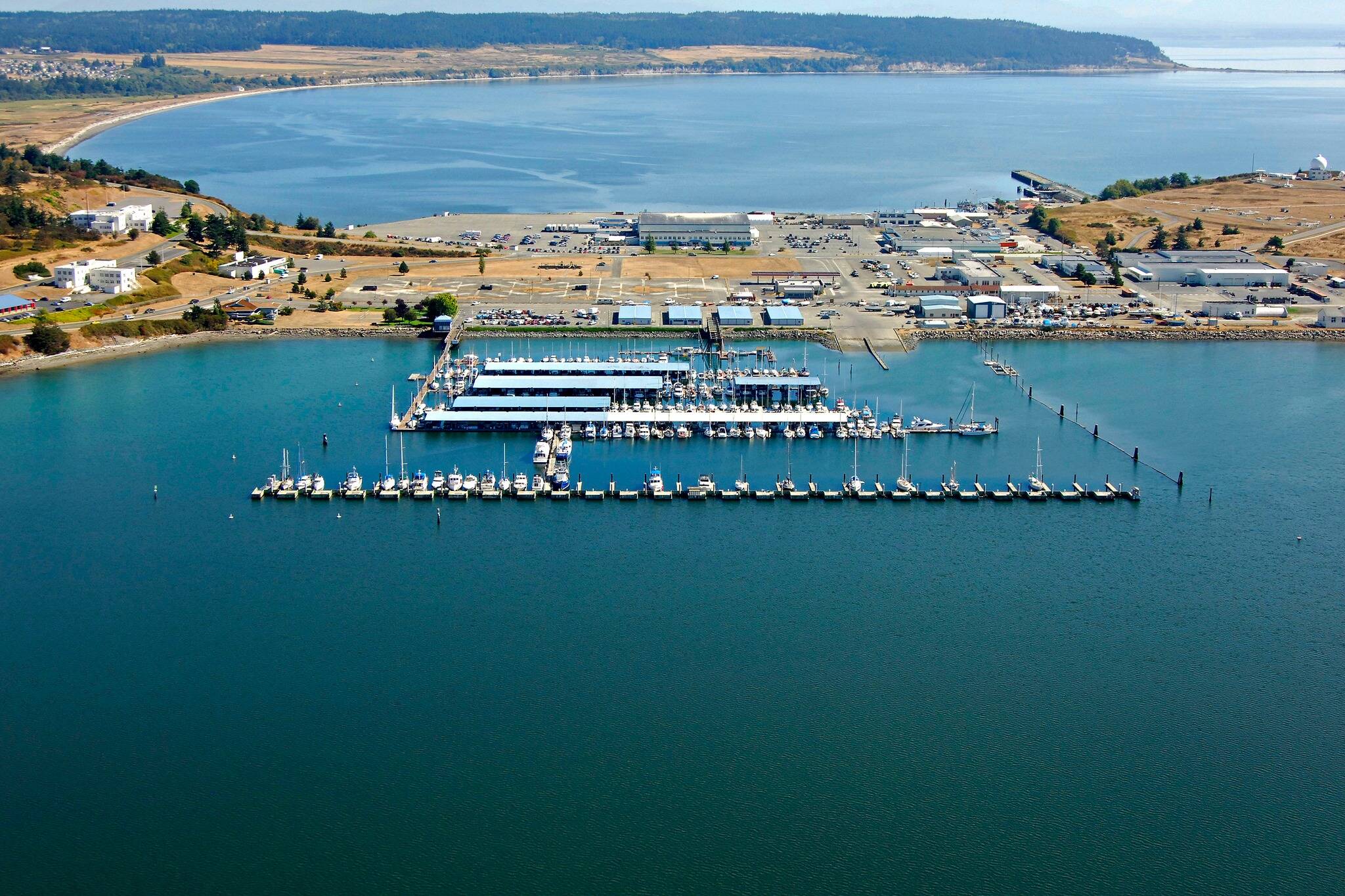Funding for Oak Harbor’s future projects may not be attainable without the creation of a port district on North Whidbey, a type of district that hasn’t been created in Washington in nearly four decades.
The Oak Harbor Port District, which requires a simple majority vote, could be on the ballot as soon as November.
Oak Harbor’s 50-year-old marina is silting in, and the breakwater and dock systems are failing. Harbormaster Chris Sublet estimates repairs and renovations to cost at least $75 million. A port district may be one solution to this problem, though council members such as Jim Woessner say that the new district would reach much farther than the Oak Harbor marina.
“(Port districts are) the catalyst that makes things go,” he said. “They typically take in a larger area when determining where the money’s coming from.”
Port districts do not necessarily involve a port. For North Whidbey, a port district could help fund a community center, industrial warehouse space, dry boat storage or a whole suite of ideas that may revitalize the economy, he said.
Washington’s first public ports — Grays Harbor and Seattle — formed when the legislature allowed for voters to create publicly owned port districts to reduce private railroad companies’ domination of the harbors that the state economy depended on in 1911.
Public ports levy taxes and issue bonds, acquire property by eminent domain, set wharf and dock rates and lease port-owned property.
Today, Washington has 75 public port districts, more than any other state. Many of these are nowhere near the water but follow the structure and ruling of the Port District Act.
The Port of Coupeville, established in 1966, covers an area from Mark Street in Rolling Hills all the way down north of Freeland. The port manages the Coupeville Wharf and Greenbank Farm.
Beyond these assets, the Coupeville Port was a conduit for federal money for fiber optic MIDI to provide phone, television and internet services for the area, Woessner said.
From 2022 to 2023, the Port of Coupeville took 11.8 cents per $1,000 assessed property value. By utilizing an Industrial Development District, the port took an additional 37.8 cents per $1,000 assessed property value in that same timeframe.
In total, following the creation of the industrial development district, the Port of Coupeville can levy up to $2.70 per $1,000 assessed value during the life of the district.
The Port of Oak Harbor would essentially have the same boundaries as the Oak Harbor School District, Woessner said. With the Port of Coupeville ending south of Oak Harbor and the Port of Anacortes ending on the north side of Deception Pass, theoretically the Oak Harbor Port would be everything in between.
Skagit County’s port started with an airport: a small, single runway that the port used to build an industrial zone, a footprint that reaches into Mount Vernon and Burlington, Woessner said. Today, the area has infrastructure for businesses and now has a hotel and commercial office buildings and turned a profit.
Oak Harbor’s waterfront is a regional asset, not just a city one, he said. Woessner imagines a pier with buildings that connect to the harbor and a water taxi service between the marina and downtown, which would be an economic driver for both areas.
A port district could accomplish this, he said.
Despite no new port districts forming since 1988, Woessner remains optimistic about Oak Harbor.
“What communities have tried?” he asked. “It’s not the communities have failed it. I think a lot of communities jumped on that bandwagon immediately. The rush happened, and then everybody else is on the sidelines because for their community it may not be the right thing, and they just haven’t attempted it.”
According to Sublet, Oak Harbor pushed for a port district in the 1990s, and it gained very little community support.
Perhaps now is a better time. There will be several public comment periods between now and when this is up for a vote.
“It’s a tough message to deliver,” Woessner said. “Some people just aren’t going to want to hear it because we are talking (about a) new tax, and I respect that too.”




